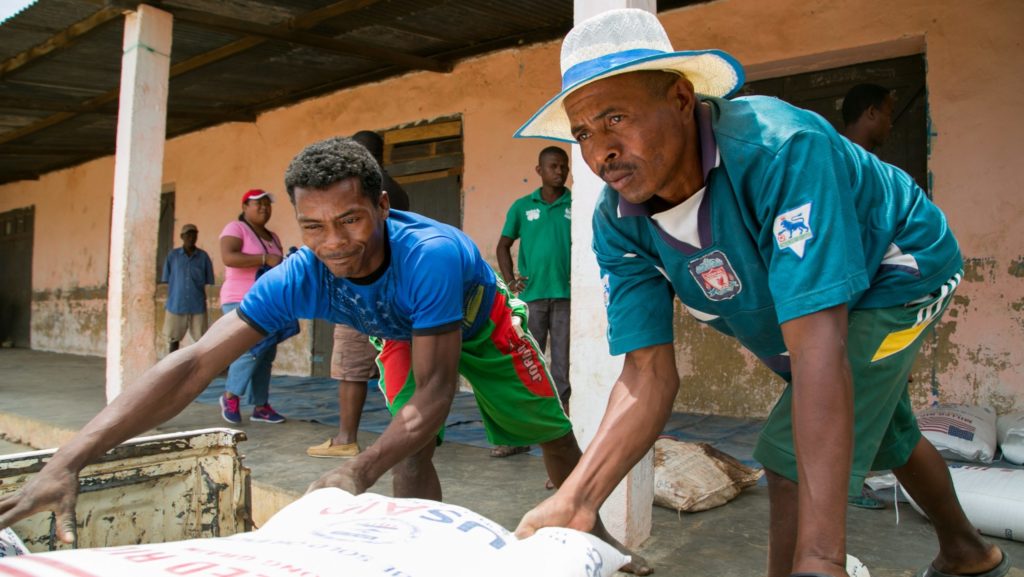Debates over a plan to reorganize the State Department should seek to improve American "efforts in the world at diplomacy and global citizenship," and should prioritize human rights and humanitarian efforts, a leading foreign policy expert told OSV News.
Secretary of State Marco Rubio on April 22 announced the "reorganization" of the State Department would include staffing cuts and the consolidation of offices.
"I have had concerns over the years about State Department activities that promoted idiosyncratic American policies on democracy, human rights -- including religious liberty and war -- policies not in line with international law," Mary Ellen O'Connell, a professor at Notre Dame Law School who specializes in international law and conflict resolution, told OSV News.
But, O'Connell cautioned, the way the Trump administration has made "radical changes," such as the closure of the U.S. Agency for International Development, or USAID, "is costing lives and inflicting suffering."
In an April 22 statement, Rubio said the plan would "make the State Department Great Again," a play on Trump's "Make America Great Again" campaign slogan.
"In its current form, the Department is bloated, bureaucratic, and unable to perform its essential diplomatic mission in this new era of great power competition," Rubio said. "Over the past 15 years, the Department's footprint has had unprecedented growth and costs have soared. But far from seeing a return on investment, taxpayers have seen less effective and efficient diplomacy. The sprawling bureaucracy created a system more beholden to radical political ideology than advancing America's core national interests."
Under the plan, he added, "Region-specific functions will be consolidated to increase functionality, redundant offices will be removed, and non-statutory programs that are misaligned with America's core national interests will cease to exist."
The plan would eliminate the department's main bureau focused on democracy and human rights, but officials suggested some of those functions would be moved elsewhere.
In a State Department briefing the same day, Tammy Bruce, the department's spokesperson, said that the consolidation of offices or programs "doesn't mean that it's gone or we don't care."
Noting the recent death of Pope Francis, O'Connell said the late pontiff "begged for the resumption of aid in his final weeks on earth."
"He has been ignored, including by Vice President (JD) Vance who had the gift of a papal audience in the Holy Father's last hours," she said in reference to the vice president's ultimatum April 23 that the U.S. would end its role in Ukraine-Russia peace negotiations if its terms for ending the conflict were not accepted.
"Our church opposes the use of war in pursuit of conquest," she said. "We support the victims of war and other human-caused catastrophes."
The State Department submitted the plan to the Senate Foreign Relations Committee and the House Foreign Affairs Committee, which provide oversight of that department, lawmakers acknowledged in press statements.
Sen. Jim Risch, R-Idaho, chairman of the Senate Foreign Relations Committee, argued in a statement the plan would allow the State Department to "refocus itself on the core mission of effective diplomacy" to "advance U.S. foreign policy goals." But Sen. Jeanne Shaheen, D-N.H., that committee's ranking member, argued in a statement that while reform should be welcomed, "Any changes to the State Department and USAID must be carefully weighed with the real costs to American security and leadership," especially where China and Russia may otherwise attempt to fill a void.
Cuts to funding for USAID, the government's now-shuttered humanitarian aid agency, in countries all over the globe have included funding for efforts by Catholic and other faith-based humanitarian groups such as Catholic Relief Services, the international relief and development agency of the Catholic Church in the U.S.
CRS has been advocating for a restructuring of U.S. foreign aid "in ways that are actually helping people and advancing the common good."
"We welcome constructive proposals to ensure critical international humanitarian assistance has the support and technical expertise needed to meet expanding global needs," Bill O'Keefe, executive vice president for Mission, Mobilization and Advocacy at CRS, told OSV News.
He said, "We look forward to engaging with other stakeholders and Congress in shaping the future of U.S. international humanitarian assistance."

